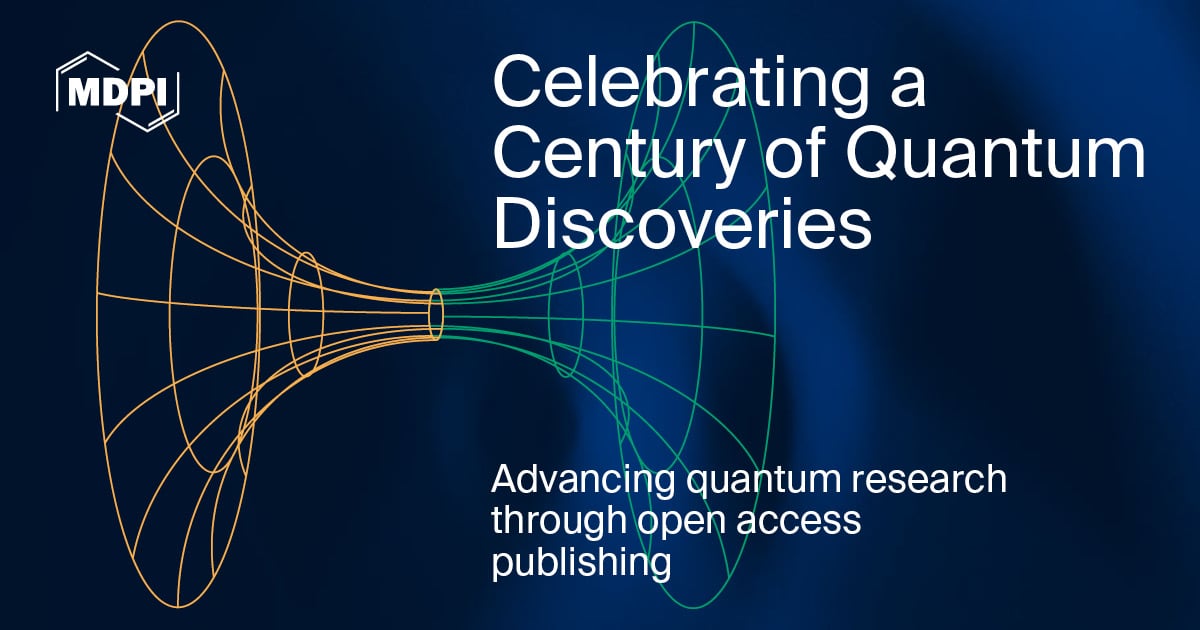
Journal Menu
► ▼ Journal Menu-
- Materials Home
- Aims & Scope
- Editorial Board
- Reviewer Board
- Topical Advisory Panel
- Instructions for Authors
- Special Issues
- Topics
- Sections & Collections
- Article Processing Charge
- Indexing & Archiving
- Editor’s Choice Articles
- Most Cited & Viewed
- Journal Statistics
- Journal History
- Journal Awards
- Society Collaborations
- Conferences
- Editorial Office
Journal Browser
► ▼ Journal BrowserNeed Help?
Announcements
5 August 2025
Celebrating a Century of Quantum Discoveries—Advancing Quantum Research Through Open Access Publishing

The year 2025 marks the 100th anniversary of quantum mechanics, a field that has completely changed the way we understand the universe. Aligned with the UNESCO 2025 International Year of Quantum Science and Technology, we have launched a landing page including a curated collection of articles to showcase a century of transformative advancements in quantum science and technology. We will also be organizing a series of webinars and workshops, featuring invited experts who will explore key topics and emerging trends, offering valuable insights into the quantum research field.
We invite you to explore our dedicated landing page, which features a collection of content highlighting this historic occasion. In collaboration with our related journals, stay tuned for upcoming events celebrating quantum breakthroughs, and explore Special Issues and topics open for manuscript submissions. Discover Special Issue Books highlighting the latest advancements in the field, along with research highlights that demonstrate the ongoing impact of quantum science. You will also find an overview of the history and evolution of quantum mechanics over the past century.
Open access drives progress by making knowledge freely available to all. We are proud to amplify quantum research and strengthen connections across the global scientific community as we move into the next era of discovery.
Explore the full initiative at quantum100.mdpi.com.

 |
 |
 |
 |
 |
 |
 |
 |
 |
 |
 |
 |
 |
 |
 |
 |
 |




